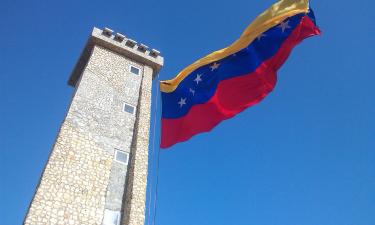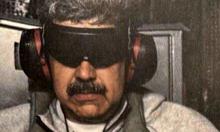Teaching Genius - the Creative Writing College
The Maxim Gorky Institute of Literature and Creative Writing in the centre of Moscow is the only higher educational institution in Europe where one can graduate with a degree in writing poetry or prose.
 The Literature Institute was the child of impulse - the creation of the first romantic years of the Russian Revolution, when the young Soviet state was obsessed with the utopian desire to become an example for the whole world to follow. It was founded in 1933 on the initiative of writer Maxim Gorky, who had always dreamed of becoming a university student, but had never had the opportunity. He even wrote once that if he could have gone to a university where the students were birched every morning and night, he would have still been happy.
The Literature Institute was the child of impulse - the creation of the first romantic years of the Russian Revolution, when the young Soviet state was obsessed with the utopian desire to become an example for the whole world to follow. It was founded in 1933 on the initiative of writer Maxim Gorky, who had always dreamed of becoming a university student, but had never had the opportunity. He even wrote once that if he could have gone to a university where the students were birched every morning and night, he would have still been happy.
This kind of hysterical striving for knowledge through rough ways was very characteristic of all the Soviet youth, as it seemed then that education could create a new kind of Man. The general assumption was that with enough enthusiasm, one could learn to be a good engineer, doctor, or even a great poet and writer.
Paradoxically, this assumption has justified itself, albeit partly. Hundreds of graduates have left the Literature Institute over the past seventy years, including the renowned poet, Konstantin Simonov, and Sergei Mikhalkov, the patriarch of Russian children's poetry and author of the Soviet and new Russian national anthems.
The Literature Institute is one of Russia's most prestigious colleges and the competition is very tough, with ten applicants for every one place. Thousands of manuscripts are sent from all over the country, but only a few of the applicants eventually enrol. Tuition is free of charge. Even in the past few years, when literary prestige has fallen dramatically, and potential students have become more interested in the bank rather than the book, the Institute has preserved a staff of brilliant poets and writers who survive on their meagre academic wages.
A highly artistic atmosphere reigns there; it features such events as poetry recitals, elite international conferences, the latest of which convened teachers of English literature. However, the writers' lives are full of drama outside the sacred walls. Serious literature does not bring any great financial reward, while many poets' fates are tragic.
The academy's aristocratic spirit has somewhat faded, however. It would be enough to mention one advert posted on its website as recognition of defeat:
"Would you like to learn how to write detective stories? We are opening an on-going seminar of adventure and detective prose." The Institute has lately even taken pride in its graduates - detective writers - who unscrupulously exploit the poor literary taste of the masses.
The Literature Institute offers full time and correspondence courses. Apart from prose and poetry, students learn translation skills, social journalism and how to write critiques. Alexander Herzen, the first dissident in tsarist Russia, was born in the beautiful mansion that houses the Institute and its 200,000-volume library. Fittingly, there is a statue of the great Russian writer in the adjacent park. Two more great literary figures lived there in Soviet times: poet Osip Mandelstam, who died in Stalin's camps, and the prose writer Andrei Platonov, who worked for the institute... as a caretaker. He lodged in a small room in the building, where he wrote all of his wonderful novels. None of them was published while Stalin was alive, so his janitor's wage was his only income. Platonov, who lived his own way, was one of those who dethroned the collectivist idea as a Soviet utopia.
Mikhail Bulgakov ridiculed the mansion and its atmosphere in his novel the Master and Margarita. As one might notice, some great writers doubted that genius could be taught, as they believed it was a gift from God.
RIAN
Subscribe to Pravda.Ru Telegram channel, Facebook, RSS!




